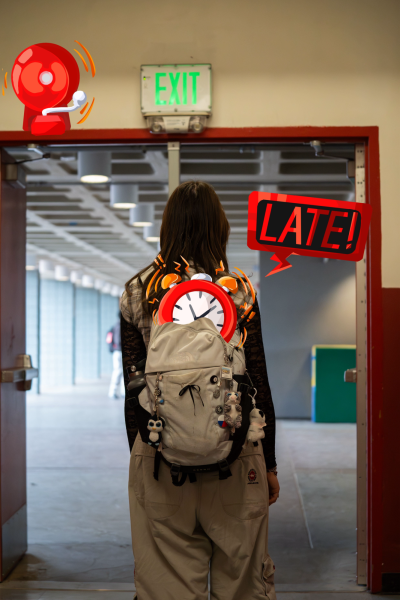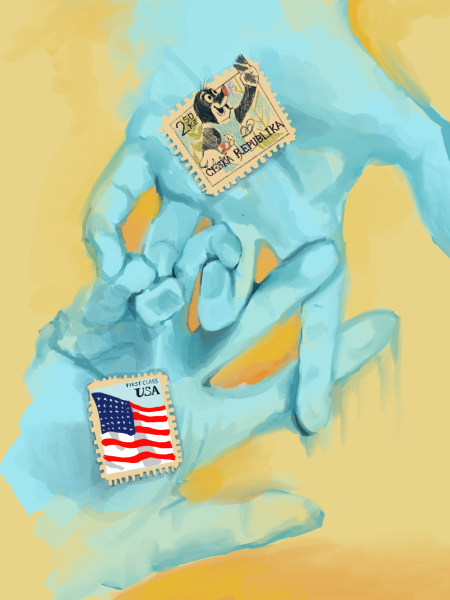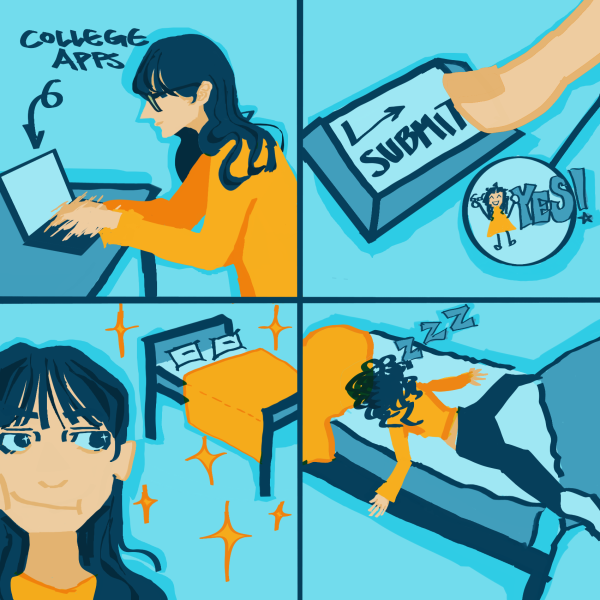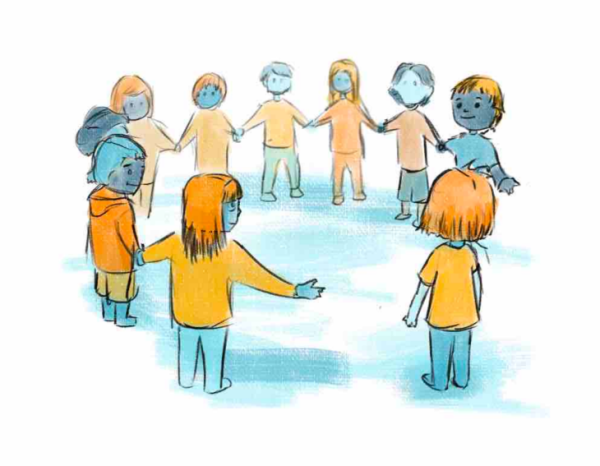Exploring Lowellites’ relationship with reading
According to a survey conducted by The Lowell of 11 randomly selected registries, 74 percent of Lowell students surveyed reported less than one hour of reading a week during their freetime.
Despite the educational, physiological, and emotional benefits that reading yields, many Lowell students are discouraged from reading in their free time. Some attribute this to a lack of time, some a lack of interest, while experts indicate that insufficient representation in books may be the culprit. Several staff members, in the English department and library, have already begun looking for solutions to inspire students to read outside of school.
Most impactful in adolescence, personal reading has been proven to make a substantial improvement in brain function. According to the George Lucas Educational Foundation, reading can make a large positive impact on the development of the prefrontal cortex, which is responsible for problem-solving, decision making, and goal making. As reported by The Journal of Librarianship and Information Science, reading makes a sizable difference in teens’ self-awareness, self-construction, and self-identification. Additionally, teens who engaged often in “pleasure reading,” reading outside of responsibility, had increased academic and social performance. “Reading has a really powerful influence on our emotions and our understanding,” said Wiley Blevins, an author and early reading specialist.
Out of 162 students surveyed, 38 percent reported zero hours of reading a week during their free time. Junior Mark Daniel Lopez Arangorin is one of these students. “I honestly feel like it’s pretty boring and that I have better things to do,” Arangorin said. Although he used to enjoy reading in his free time, that changed as he got older. “I used to love reading, especially huge chapter books,” Arangorin said. “I was so interested. I don’t know what happened.”
Blevins believes that a disinterest in extracurricular reading can be attributed to inadequate in-school support. According to him, it’s a schools’ responsibility to encourage and foster a love of reading. “Everyone comes with different literacy backgrounds, with different language backgrounds, and different forms of English,” Blevins said. “You take it into account, but it’s not the deciding factor about whether or not you’re a successful reader, school is.”
Some students feel that Lowell’s fast-paced academic atmosphere is the biggest inhibitor to their reading for pleasure. From the students surveyed, 80 percent cited a lack of time as being one of the main obstacles preventing them from reading. Lawlor related to this and made connections between the lack of time and Lowell’s atmosphere. “The environment at Lowell is so stressful…sometimes I get home from school and it’s been such a long day that I kind of just need to close my eyes,” Lawlor said.
According to Steven Stasso, one of Lowell’s librarians, academic stress often leaves the library underutilized. “We do have a core number of readers who regularly come and are checking out books,” Stasso said. From the students surveyed, 83 percent haven’t checked a book out from the Lowell library in the last year. “I think there are a lot of students who are readers and are checking out books from other sources or readers who probably put [reading] aside because they’re overwhelmed with their homework,” Stasso said. Nonetheless, Lowell’s avid readers, like junior Maureen Loftus, assure that the library is a great resource for students who are looking for books. “The library is great, and the librarians definitely inspire reading,” Loftus said.
Some experts believe that one way to make students more interested in personal reading is to ensure that kids see themselves reflected in books. Referring to a theory developed by Dr. Ruine Sims Bishop which describes some books, which reflect the reader’s life, as “mirror books”. “The lack of mirror books has turned a lot of kids off reading,” Blevins said. In 2021, the California Department of Education reported that 77 percent of Lowell students were nonwhite or two or more races. Yet, The Cooperative Children’s Book Center 2021 children’s book survey, which catalogs books for kids and teens published yearly, reports that 30 percent of books published in 2021 had nonwhite protagonists or central characters. Blevins asserts that students who cannot find many books to represent them cannot be expected to develop a love of reading. Arangorin has never felt like any particular book represented his identity very well. “I’d like to read something about a teenage Filipino/a/x. Whether it be the more happy side of life or the opposite — it’s just something I’m interested in reading about,” Arangorin said.
Some students feel that books read in class need to be more engaging to inspire an interest in extracurricular reading. One Lowell student surveyed described the assigned reading they got as, “not particularly bad, just very uninteresting,” and cited this as the reason they didn’t enjoy reading. Lowell English teacher Bryan Ritter feels that the structure of English classes further intensifies this issue. “Even when you take the most interesting novel, if you present it in an English room and you say, “You have to read this,” there’s a disconnect, there’s a disenfranchisement that occurs at that point,” Ritter said.
According to Ritter, the English Department is working to make assigned reading more appealing but also stay within their budget. Every year, teachers have the chance to make minor edits to the reading list, a list of approved books for each class and grade level. According to Ritter, this year that list is being more thoroughly updated with the goal of being a more diverse and contemporary collection. Ritter cites financial barriers as the reason for a selection described by many students as boring. “We have a list of books we’d love to acquire to teach but we just don’t have the funding,” Ritter said. Regardless, an updated list is expected to be implemented in the 2022-23 school year.
The library is also working on making reading for pleasure more inviting. Stasso has been ordering new books with the objective of creating a diverse selection of books, both in subject and difficulty. Before ordering books, Stasso considers each books’ topic, whether the topic would be interesting to students, and whether the quality of writing is engaging but not too difficult for high schoolers. To get students more interested in reading the books the library does have, library aides have started displaying new books, with plot summaries, around the library. Stasso said he’s also been trying to start a library podcast, which will share students’ perspectives on books and give book recommendations.
As the library and English department make plans to expand their book repertoire and get more students interested in reading, readers like Lawlor will continue to hope for a future where all their peers read. “I wish people saw how fun reading could be because I definitely think Lowell students have a mindset that reading has to be academic,” Lawlor said.

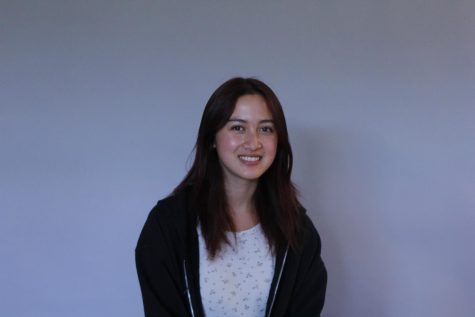
Elise is a senior. This is her third year as an illustrator for the publication. Some of her interests include petting cats, going to museums, and spending unforgiving amounts of money on the evil coffee monopoly that some may know as Peet's.




